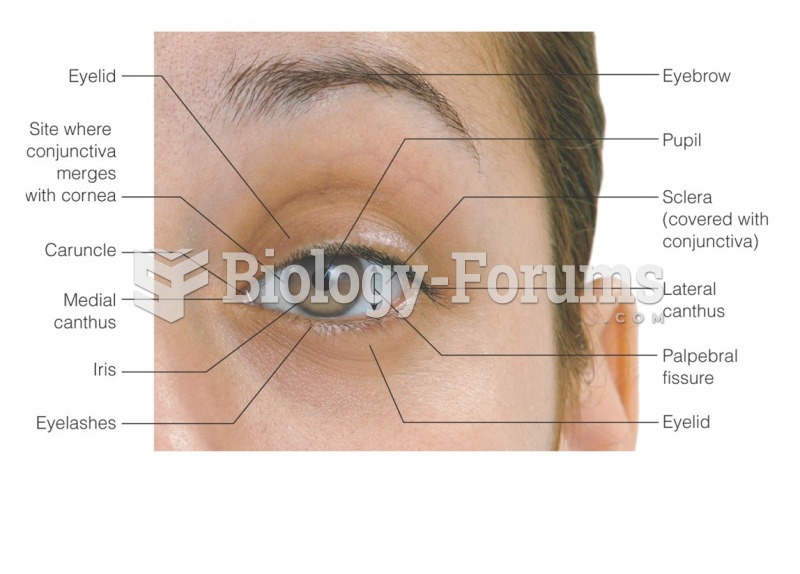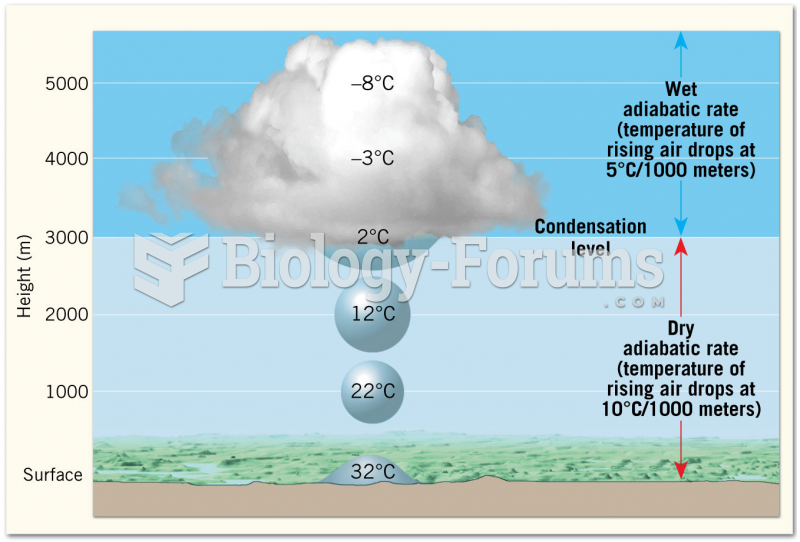|
|
|
If you could remove all of your skin, it would weigh up to 5 pounds.
On average, someone in the United States has a stroke about every 40 seconds. This is about 795,000 people per year.
Cutaneous mucormycosis is a rare fungal infection that has been fatal in at least 29% of cases, and in as many as 83% of cases, depending on the patient's health prior to infection. It has occurred often after natural disasters such as tornados, and early treatment is essential.
Acetaminophen (Tylenol) in overdose can seriously damage the liver. It should never be taken by people who use alcohol heavily; it can result in severe liver damage and even a condition requiring a liver transplant.
Egg cells are about the size of a grain of sand. They are formed inside of a female's ovaries before she is even born.







